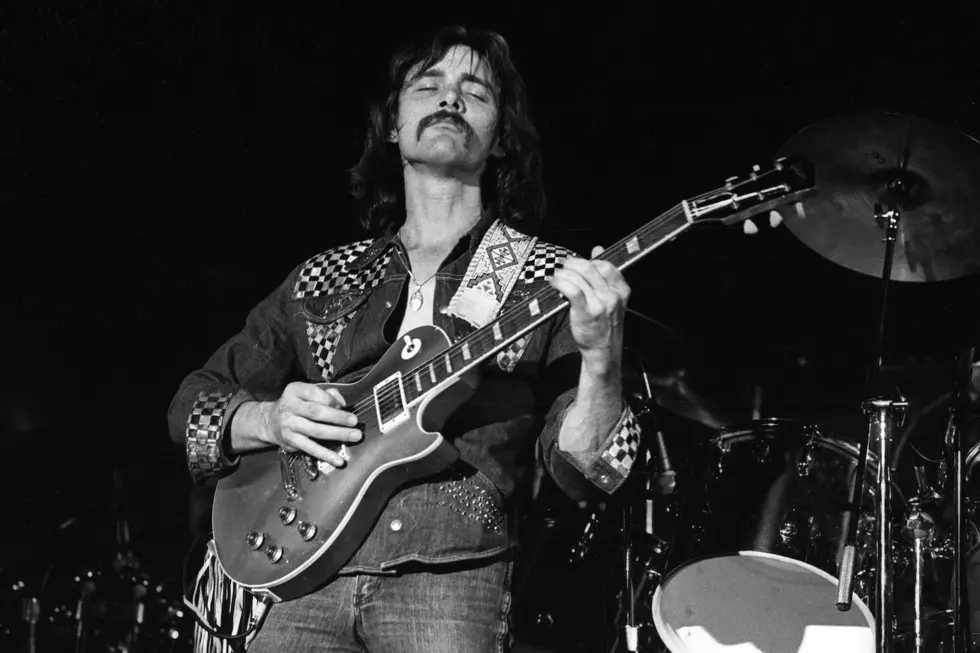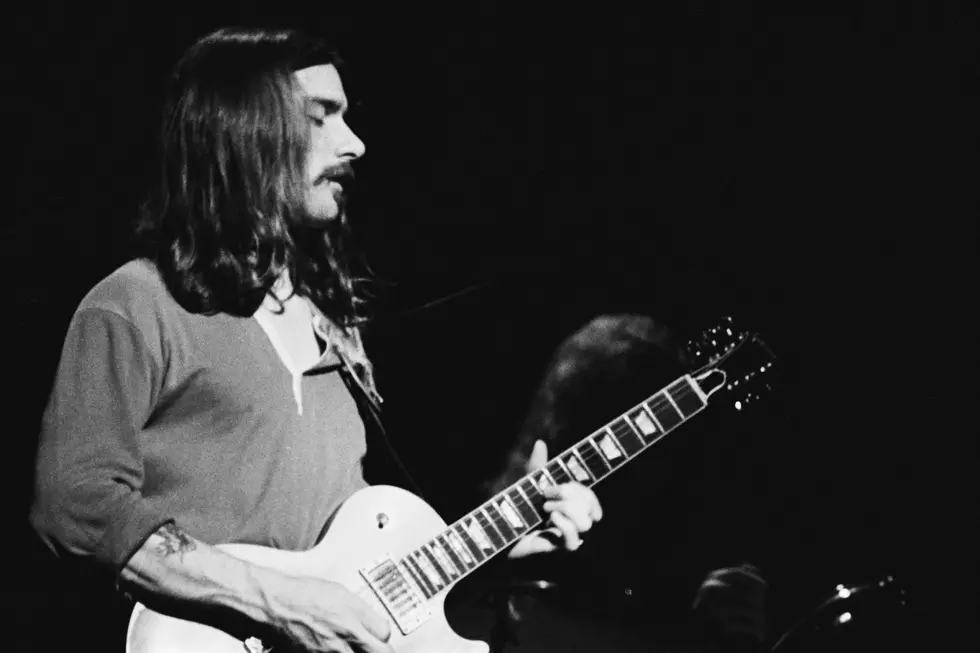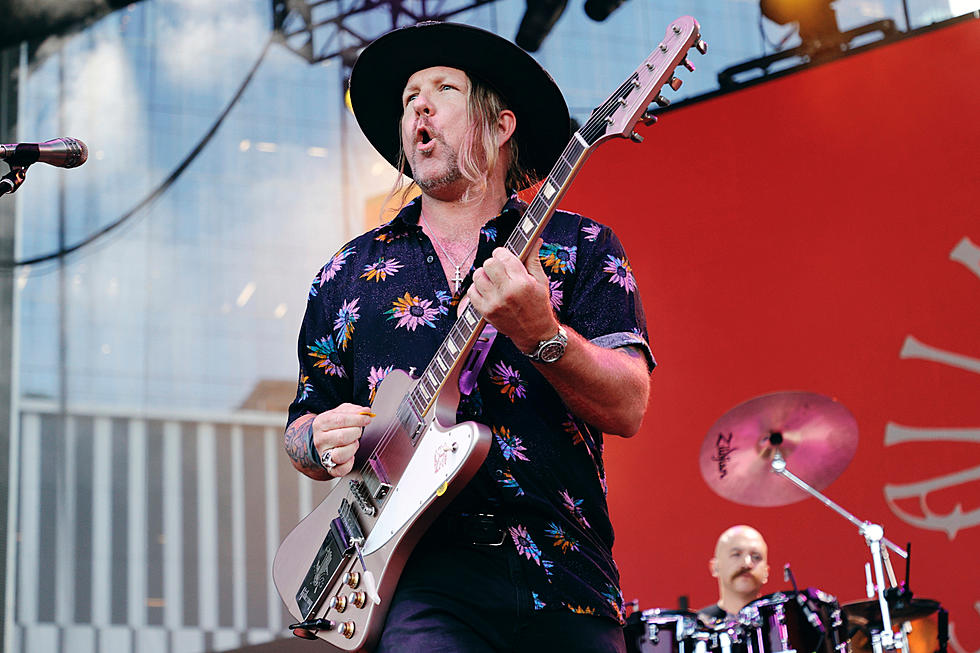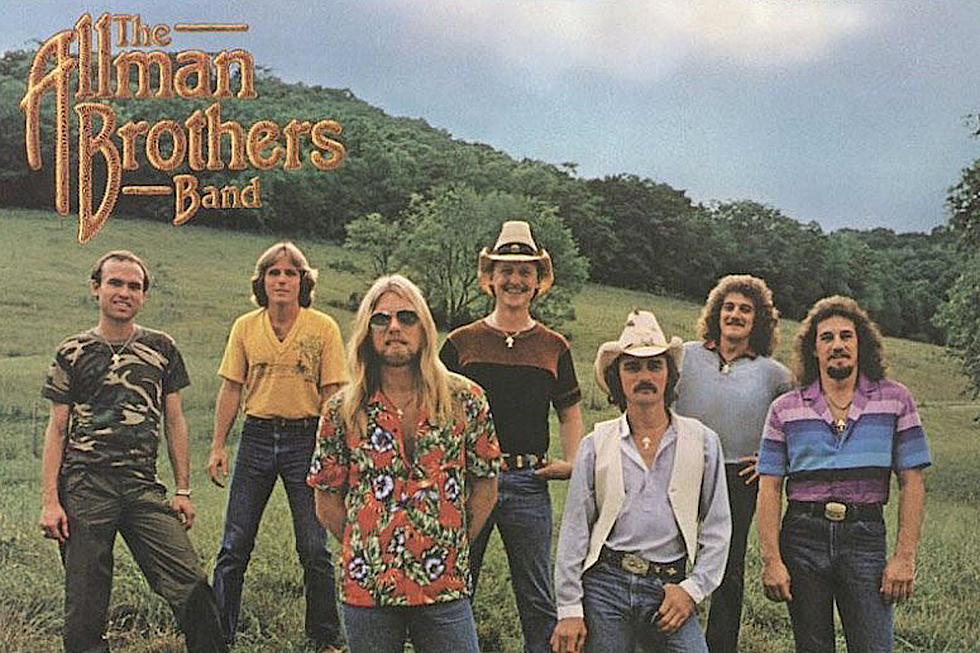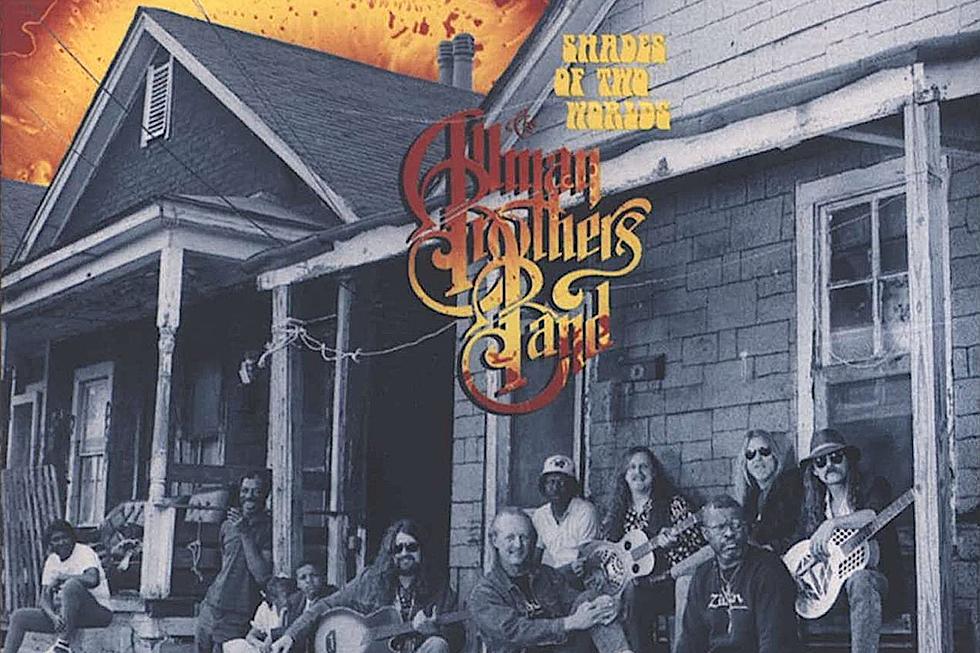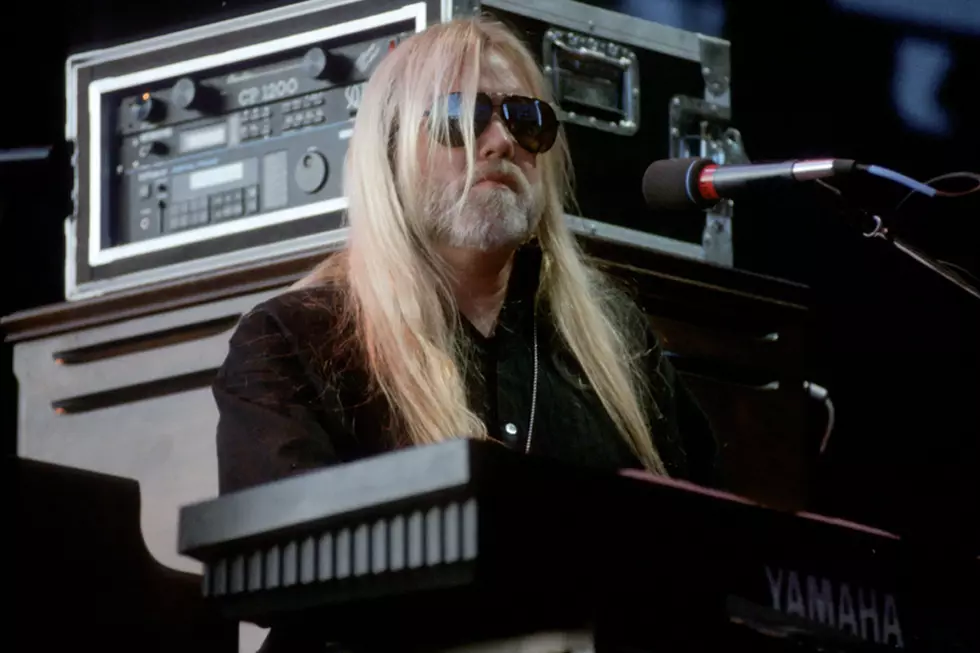
Top 10 Gregg Allman Songs
Gregg Allman will always be most famous – and rightly so – for his contributions as singer, songwriter and keyboardist with the Allman Brothers Band. But, as you'll see in this list of Top 10 Gregg Allman Songs, his solo career provided its share of highlights along the way. Our final tally touches on everything from the Allmans' criminally overlooked 1969 debut and their celebrated At Fillmore East breakthrough to a key moment from '90s, but not without a pair of stops outside that celebrated catalog. Duane Allman looms large over the list, just as he did in passing. But in the end, the Top 10 Gregg Allman Songs make their own case for the brother who remained.
- 10
"Floating Bridge"
From: 'Low Country Blues' (2011)You couldn't help but think of Allman's many health scares as he rumbled through this old Sleepy John Estes song. Opening with a strikingly thread-bare croak, Allman sat at the bottom of a muddy river, looking up at family and friends as he struggles for air. After a lonely handful of minutes, he finally began to move back toward the murky light above. A similarly emboldened Allman, fresh off a life-saving liver transplant, made Low Country Blues a testament to determination.
- 9
"Soulshine"
From: 'Where It All Begins' (1994)"Soulshine" didn't emerge from a heralded, or even very congenial, period in the Allman Brothers Band history. (Everyone, it seemed, was dealing with personal problems; this would ultimately be the last album with co-founding guitarist Dickey Betts.) Still, Where It All Begins became their final gold-selling release on the strength of songs like Warren Haynes' "Soulshine," a straight-forward, live-in-the-studio song that Allman presents with lingering melancholy and a dash of hard-won hopefulness.
- 8
"Don't Mess Up a Good Thing"
From: 'Laid Back' (1973)This rollicking Oliver Sain cover was the second single, following a solo update of "Midnight Rider," from Allman's No. 13 hit solo debut – and, as with that remake, refocused listeners on the deep soul and greasy R&B underpinnings of the Allman Brothers Band sound. That's the principal attribute for much of Laid Back, which featured Allmans contributors Jaimoe and Chuck Leavell but almost never sounds exactly like the band that had just issued Brothers and Sisters.
- 7
"Ain't Wastin' Time No More"
From: 'Eat a Peach' (1972)Work on this song was underway when Gregg's brother Duane was lost in a motorcycle accident. Gregg completed it – reportedly after receiving early encouragement from Berry Oakley and Jaimoe – by adding a lyric that drills into the unimaginable sense of loss they were all experiencing. Betts spent the plane ride down practicing to get the slide just right, and Eat a Peach had an instant classic for both its opening track and first single.
- 6
"I'm No Angel"
From: 'I'm No Angel' (1987)Though produced in the sleek style of the day, and featured in a video dotted with sexy cowgirls straight out of MTV central casting, "I'm No Angel" finds Gregg Allman at his cheeky best. (Heck, he even gives the executioner a quick peck before he's hanged.) Apparently, his former bandmates were paying attention as this song soared to the top of Billboard's Mainstream Rock charts, too. The Allman Brothers Band were back together within a couple of years, and performing this song on stage – though without the provocative extras, of course.
- 5
"Not My Cross to Bear"
From: 'The Allman Brothers Band' (1969)Later the title of Gregg's 2012 autobiography, "Not My Cross to Bear" is a testament to the pain of loss – he wrote it about a broken relationship that took place before the band's debut sessions – and to the incredible power of his voice. Who else could have leveraged this song, even for a brief moment, away from his brilliant brother Duane Allman's musings on the guitar? By the way, "Blackhearted Woman" – the very next song on The Allman Brothers Band – is about the same woman.
- 4
"Melissa"
From: 'Eat a Peach' (1972)As ubiquitous as Gregg Allman's plaintive vocal on this track has become, "Melissa" almost never saw the light of day. Gregg and Duane had recorded it with their preceding group the 31st of February, and Gregg apparently thought so little of it that he sold the publishing rights for cash he used to buy a plane ticket. Duane, however, always loved the song – leading to its inclusion as a tribute on the post-motorcycle accident project Eat a Peach. But only after Dickey Betts added another unforgettable lead.
- 3
"Dreams"
From: 'The Allman Brothers Band' (1969)One of the stone-cold classics from the Allmans' debut that makes its paltry No. 188 finish on the Billboard charts all the more confusing. Already the centerpiece for The Allman Brothers Band, "Dreams" later became an extended concert staple – sometimes stretching out to almost double its original seven minutes. Oddly, however, it was the song that gave the group the most trouble in the studio. Duane finally nailed his guitar part after asking the others to turn off the lights, improvising a tear-inducing overdubbed solo on the slide.
- 2
"Whipping Post"
From: 'At Fillmore East' (1971)Unable to find a piece of paper while in a rush of frustration over their early struggles in the music business, Gregg Allman scribbled the words on a nearby ironing board. Eventually, "Whipping Post" expanded from a five-minute blues howl on their debut to fill an entire side on vinyl copies of At Fillmore East – the album that put those worries behind the Allman Brothers Band for good. Yet, the song – written by a 20-something who was already well beyond his years – never lost its billowing power.
- 1
"Midnight Rider"
From: 'Idlewild South' (1970)Gregg Allman's signature song, "Midnight Rider" speaks to – and exemplifies – his restless nature. After all, Allman later made another pass at this song, adding swampy horns. Still, the definitive version will always be the first one from three years earlier. Understated where the remake tends toward obvious assertion, the original "Midnight Rider" grew out of a rough, late-night demo recorded after an inspired Gregg broke into Capricorn Sound Studios. Duane completed things by adding his own asides later.
More From Ultimate Classic Rock
